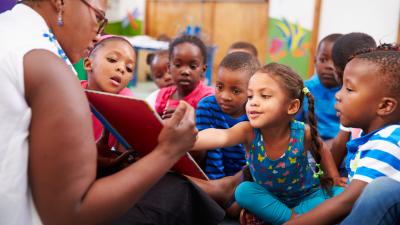Providing inclusive and high-quality education for all learners, including those who are deaf or hard-of-hearing, should begin at the pre-primary level. The early childhood stage, from birth to five years old, is crucial for a child's development. However, many deaf children grow up in environments with limited language exposure, leading to language deprivation during their early years.
Language first
Most deaf and hard-of-hearing children are born into families who can hear. Unfortunately, these parents often lack knowledge on how to communicate effectively with their deaf child. As a result, these children may only start learning sign language when they attend school which can lead to a delay in their reading comprehension. It is crucial for a child to have early and consistent access to language to improve their literacy skills. Kentalis International Foundation is dedicated to sharing the expertise of the Kentalis organization with developing countries to help support deaf and hard-of-hearing children aged 1-5 years old with their language-to-literacy transition.

We focus on:
- Providing expertise to educators, through teacher training colleges and universities, on inclusive early childhood education.
- Encouraging co-enrollment of young deaf children with their peers and being taught together either in one classroom or at the same school.
- Training local Deaf associations on how to support parents and the community in daily life communication with a deaf child at home.
- Improving knowledge of parents and community health workers about hearing loss screening and diagnostics in order to boost early identification.
- Stimulating an enriched language acquisition environment in and outside school, both visual and auditory.